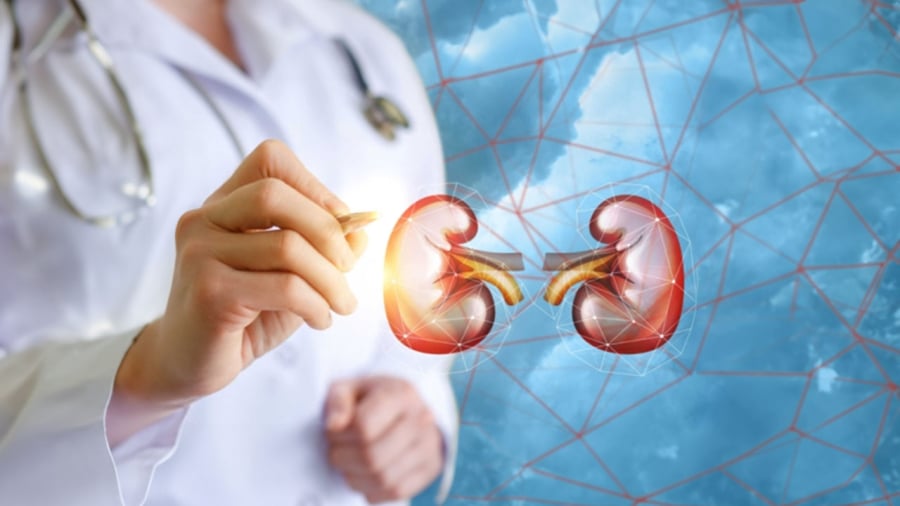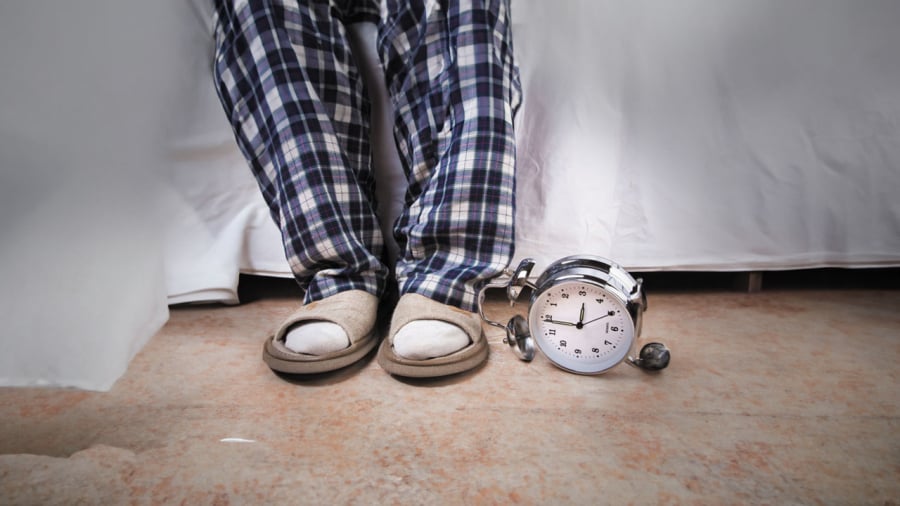The kidney is an excretory organ and is extremely important in the body. When kidney function declines, we will have worrisome symptoms, many of which appear at night. The kidney’s main function is to filter and eliminate excess fluid from the blood, and then excrete it through urine. The kidney plays a crucial role in health. Therefore, you should see a doctor immediately if you have these symptoms or if they recur at night:

Muscle cramps
When kidney function declines, the body will experience an imbalance in electrolytes, resulting in muscle cramps. Low calcium and high phosphate levels in the blood can increase the risk of muscle cramps at night in people with kidney disease. If the muscle cramps are severe and cause pain and difficulty returning to the original position, or if the cramps are prolonged and not caused by pregnancy, caution is advised.
Itchy skin
Itchy skin caused by kidney disease can occur both at night and during the day. The cause of itchy skin is poor kidney function, which cannot filter and maintain the balance of minerals in the blood. As a result, the skin becomes itchy, rashy…

Nocturia
Nocturia is a common problem in people with decreased kidney function. This is a condition in which a person wakes up frequently at night to urinate. In older people, occasionally waking up to urinate at night is normal due to the consequences of aging. But at any age, if this condition persists, causing frequent awakenings at night to urinate, it could be a sign of an underlying disease, especially a kidney problem. Check if you have been drinking diuretic fluids before bedtime, if not, be cautious as kidney disease may be approaching.

Insomnia
Insomnia is also a very common problem in chronic kidney disease. This is often the result of nocturia, which causes you to wake up and then have difficulty falling back asleep, leading to restless, unclear sleep. Insomnia not only makes the body tired but also exacerbates kidney function, creating a vicious circle. Moreover, insomnia also increases the risk of premature death by 1.4 times for any cause.
Frequent nocturnal awakenings
The hormone melatonin is responsible for creating the sleep-wake cycle in the body. In normal people, melatonin is low during the day and increases at night, so we sleep longer at night. But if you experience the opposite, especially sleeping less during the day and remaining awake at night, be cautious about kidney disease. Some studies have shown significantly lower melatonin levels in the bodies of patients with kidney disease at night. This makes them awake and very difficult to sleep.
Therefore, when you have the above symptoms or they occur at night, do not take them lightly. Especially for those who often have facial and limb swelling, or abnormal urination symptoms, you should seek early treatment. Treating kidney disease is exhausting and costly.





































